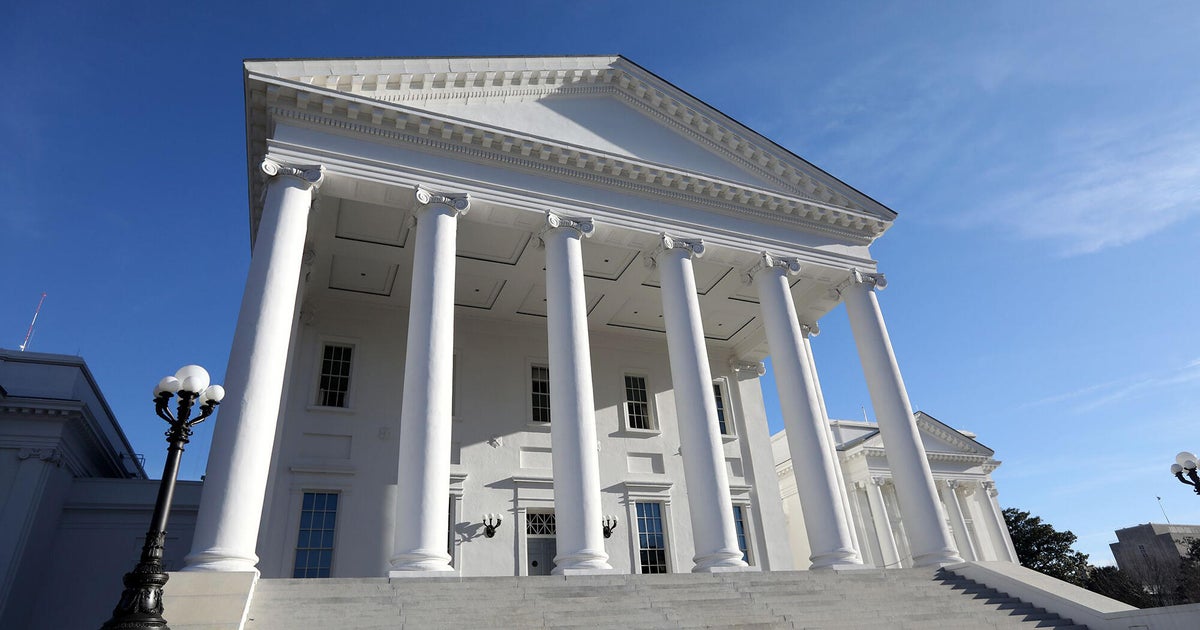Schumer says Senate will act on bipartisan infrastructure bill next week
Washington — Senate Majority Leader Chuck Schumer urged a bipartisan group of lawmakers on Thursday to finalize their infrastructure proposal, saying that the Senate will begin procedural votes for the bill next week.
Schumer announced that he will file cloture on a bill that will serve as a "vehicle" for the package on Monday, setting it up for consideration. The Senate will then vote on cloture, which would limit debate, with a motion to proceed on Wednesday. That vote requires 60 votes to advance — meaning that it will have to garner support from all 50 Democrats as well as at least 10 Republicans.
"All parties involved in the bipartisan infrastructure bill talks must now finalize their agreement so that the Senate can begin considering that legislation next week," Schumer said in a speech on the Senate floor. He told reporters later on Thursday that he believes negotiators have "plenty of time to get it done."
Schumer's specification that the vote will be on a vehicle for the proposal, a House bill, means that the language for the Senate bipartisan proposal does not actually have to be ready by Wednesday, as it can be inserted later during the amendment process. But he is imposing a deadline for any outstanding issues among the bipartisan group to be resolved. Time is quickly running out ahead of the August recess, when lawmakers are scheduled to leave Washington for several weeks.
Senators involved in the bipartisan discussion had previously set a self-imposed deadline of ironing out any remaining areas of disagreement by Thursday, although they appeared unlikely to reach that goal. The core group of negotiators huddled for a two-hour long meeting on Thursday afternoon, and were joined for some of that time by Steve Ricchetti, Laura Terrell and Brian Deese, members of the White House legislative team.
Senators told reporters after the meeting that they would continue to negotiate over the weekend. Paying for the bill remains an area of contention, as senators are discussing whether to use tax enforcement as a revenue stream, an idea met with skepticism by some Republicans. Democratic Senator Jon Tester told reporters that senators are considering alternatives to tax enforcement as a pay-for.
But even though there are still disagreements on funding for the proposal, negotiators insisted that they would reach a deal.
"Prospects remain good because infrastructure is so darn popular," Senator Rob Portman, the lead Republican negotiator, told reporters after the meeting. When asked if talks were falling apart, GOP Senator Mitt Romney said "absolutely not."
"My goal this weekend is to make sure that we can all get there that we've got not only the agreement, but we've got texts that people can look at so that we're not in a situation where we say, 'I don't know what I'm voting on, I just hope that it's good,'" Republican Senator Lisa Murkowski told reporters, adding that she had "delivered a whole bunch of homework assignments" during the meeting.
Democratic Senator Mark Warner was even more optimistic, saying, "When we make final agreements, we'll be able to announce a deal tonight."
Some Republicans argued earlier on Thursday that it was counterproductive for Schumer to say he would bring a vehicle for the bill to the floor next week. Even Republicans who would likely support the bill may vote against cloture, because they aren't willing to vote on the shell of a bill if the legislative text has not been finalized.
"I think setting artificial deadlines is going to make it harder, not easier. Because even people on our side who might be inclined to vote for a bill, I don't think are going to vote to get on a bill they haven't seen," Republican Senator John Thune, the minority whip, told reporters on Capitol Hill.
Romney said earlier on Thursday that it was a "dereliction of duty to vote on something that hasn't been drafted yet."
"We're proceeding with negotiations. We're working out issues, we're drafting, that's proceeding, and we probably should reach a point where people know what they're voting on," Romney said.
GOP Senator Bill Cassidy, another negotiator, said that he didn't believe Schumer's deadline "helps or hurts," noting to reporters that "you can't put more pressure on us than we feel internally."
Portman repeatedly insisted before and after the meeting on Thursday that senators would work to "get it right."
"Look, I appreciate the fact that the majority leader wants us to have a vote on this, and to have a vote as soon as possible. I don't disagree with that. But as soon as possible means when it's ready," Portman told reporters.
Schumer also imposed Wednesday as a deadline for all Senate Democrats "to agree to move forward" on a budget resolution laying out the instructions for crafting a separate $3.5 trillion reconciliation bill. Democrats on the Budget Committee earlier this week announced an agreement on the bill, which will include several of President Biden's priorities not included in the bipartisan proposal. As the wide-ranging bill will not garner any Republican support, Democrats are hoping to pass it through reconciliation, which allows legislation to be approved with a simple majority vote.
Democrats will need to be united in their support for the budget reconciliation bill in order for it to pass. Moderate Democrats such as Senator Joe Manchin have raised concerns about a high price tag. Manchin, who is also a member of the bipartisan group, told reporters on Thursday that he would have to "come up to speed really, really quick" on the reconciliation proposal before agreeing to it by Wednesday.
"That's a challenge. I'll take a challenge. I'll work as hard as I can," Manchin said.
Aaron Navarro contributed to this report.



